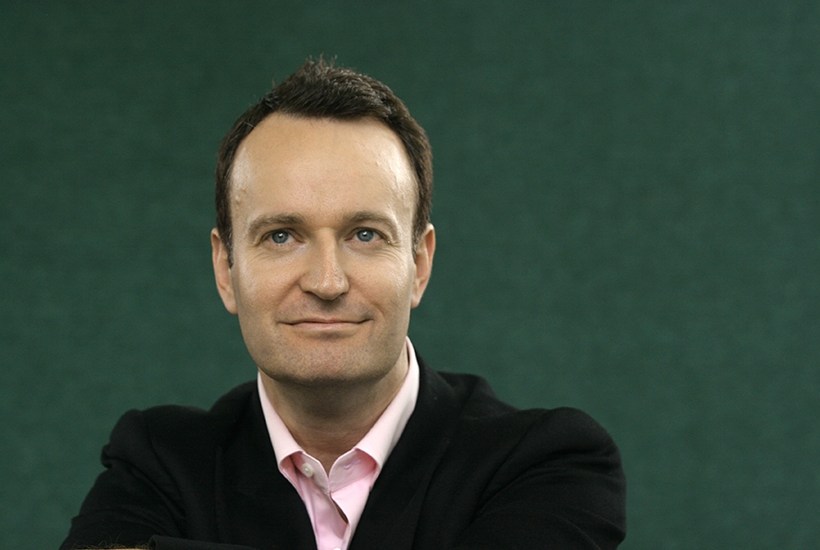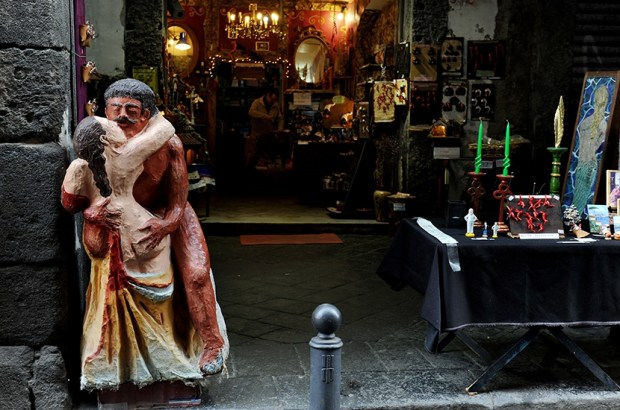Presumably because a small part of it takes place in Salford, the epigraph to Andrew O’Hagan’s latest novel consists of four lines from Ewan MacColl’s ‘Dirty Old Town’. More fitting, though, might have been six words from the Undertones’ ‘Teenage Kicks’: ‘Teenage dreams, so hard to beat.’
The first half of the book follows a group of lads from Ayrshire as they excitedly prepare for, excitedly travel to and excitedly attend a post-punk music festival in Manchester in 1986. The narrator is the bookish 18-year-old Jimmy Collins, whose life bears a close resemblance to O’Hagan’s at the same age and time. But the focus is firmly on his friend Tully Dawson, who has ‘innate charisma, a brilliant record collection, complete fearlessness in political argument, and… knew how to love you more than anybody else’.
In some ways, then, this is a book in the vein of The Great Gatsbyand Brideshead Revisited (both mentioned in passing) where a dazzled narrator pays tribute to a dazzling chum. There is, however, one difference: here the narrator’s admiration never wavers for a second. Just occasionally, the more heretical reader might wonder if Tully’s extended comic riffs and political diatribes are always so completely marvellous. But if the same thought ever crosses the mind of either Jimmy Collins or Andrew O’Hagan, they show no sign of it.
Still, at a time when male friendship — as opposed to the sainted female kind — is often depicted as superficial, essentially competitive or both, O’Hagan’s tenderness feels distinctly refreshing. So too does his awareness that all the piss-taking, endless quoting from favourite films and shared musical passions, far from being a substitute for intimacy are an expression of it. Nor do they preclude more conventionally intimate conversations.
Meanwhile, back with those teenage kicks, the group’s time in Manchester (and Salford) is properly thrilling, as they drink joyously, witness the Smiths in their pomp and order from the laminated drugs menu at the Hacienda. Even before it’s over, the weekend has already taken on the status of a communal myth — a status it never loses. ‘They say you know nothing at 18,’ reflects Jimmy. ‘But there are things you know at 18 that you will never know again.’
For the second half, we cut to 2017 when Jimmy is still living an O’Hagan-like life, by this stage as a successful writer, and still friends with Tully, who’s an English teacher in Glasgow. But then Tully is diagnosed with cancer, and the book’s transformation from innocence to experience is confirmed. Yet even as the tone becomes increasingly elegiac, the sadness is mitigated by O’Hagan’s continuing belief in what it’s hard to call anything other than the power of love.
Again, anybody seeking a gap in perspective between Jimmy and O’Hagan will seek in vain. ‘It’s been a hell of a ride,’ says Tully near the end: a remark we’re clearly intended to accept without a trace of irony, even though it refers to a life that, objectively looked at, might seem a fairly ordinary one (despite a cracking weekend in Manchester in 1986). But in the end, I’d suggest, that’s the point: the book’s abiding and ultimately irresistible niceness invites us to take the characters’ personal myths at face value — just as we tend to do with our own.
Got something to add? Join the discussion and comment below.
Get 10 issues for just $10
Subscribe to The Spectator Australia today for the next 10 magazine issues, plus full online access, for just $10.
You might disagree with half of it, but you’ll enjoy reading all of it. Try your first month for free, then just $2 a week for the remainder of your first year.














Comments
Don't miss out
Join the conversation with other Spectator Australia readers. Subscribe to leave a comment.
SUBSCRIBEAlready a subscriber? Log in